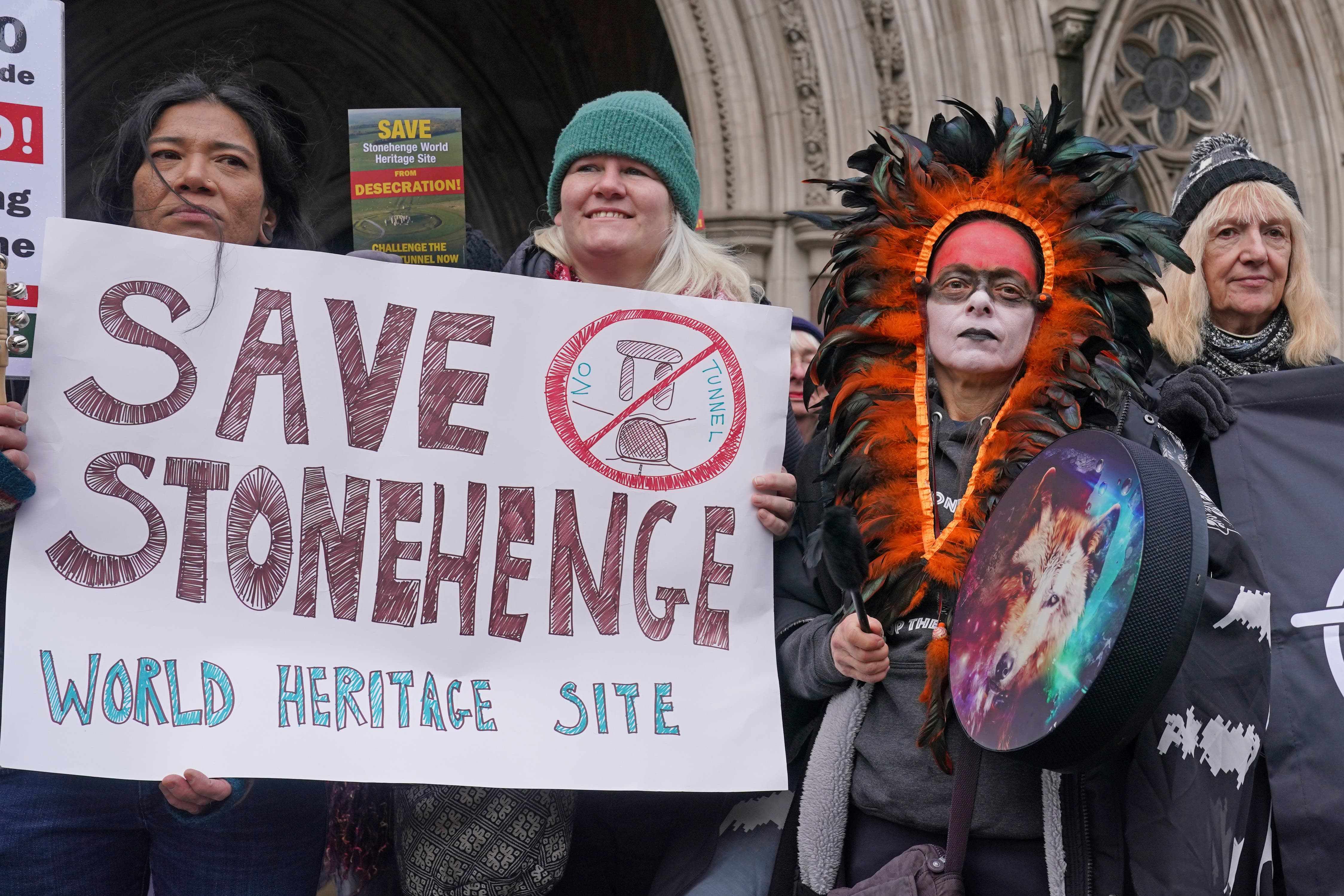Campaigners lose another challenge over Stonehenge tunnel plan
The Government has argued that the benefits outweighed the harms

Your support helps us to tell the story
From reproductive rights to climate change to Big Tech, The Independent is on the ground when the story is developing. Whether it's investigating the financials of Elon Musk's pro-Trump PAC or producing our latest documentary, 'The A Word', which shines a light on the American women fighting for reproductive rights, we know how important it is to parse out the facts from the messaging.
At such a critical moment in US history, we need reporters on the ground. Your donation allows us to keep sending journalists to speak to both sides of the story.
The Independent is trusted by Americans across the entire political spectrum. And unlike many other quality news outlets, we choose not to lock Americans out of our reporting and analysis with paywalls. We believe quality journalism should be available to everyone, paid for by those who can afford it.
Your support makes all the difference.Campaigners have lost a High Court challenge over renewed plans to build a road tunnel near Stonehenge.
Save Stonehenge World Heritage Site (SSWHS) challenged Transport Secretary Mark Harper’s backing of plans which include the two-mile tunnel, to overhaul eight miles of the A303.
The previous go-ahead for the National Highways’ project was quashed by the High Court in July 2021 amid concern about the environmental impact on the site.
But the Department for Transport (DfT) approved the tunnel, from Amesbury to Berwick Down in Wiltshire, for the second time, on July 14 last year.
In December, the campaigners brought a bid to the High Court in London to challenge the decision to reapprove the plans.
However, in a ruling on Monday, Mr Justice Holgate largely dismissed their claim, finding most parts of their case were “unarguable”.

One part of the legal bid, over the DfT’s approach to an environmental impact assessment, will be determined at a later date.
In his 50-page ruling, Mr Justice Holgate said ministers had “rightly focused on the relevant policies” and that the campaigners’ evidence “provides no basis for undermining that conclusion”.
During the hearing last year, David Wolfe KC, for SSWHS, said the Government gave “unlawful consideration of alternatives” to the project, adding that campaigners believed National Highways had provided “fundamentally flawed” information over these that “failed to acknowledge the heritage harm” and was based on a “flawed analysis of likely traffic figures for the A303”.
However, James Strachan KC, for the DfT, said the Government concluded the project was “consistent with the UK’s obligations” under the world heritage convention and that it would work with advisory bodies to “minimise harm”.
The Government has argued that the need for the scheme and its benefits “outweighed the harms”, including the “less than substantial harm to heritage assets”.
National Highways has said its plan for the tunnel will remove the sight and sound of traffic passing the site and cut journey times.
Then-transport secretary Grant Shapps first gave the green light to the project in November 2020, despite advice from Planning Inspectorate officials that it would cause “permanent, irreversible harm” to the area.
The SSWHS alliance successfully challenged his decision in the High Court.
Join our commenting forum
Join thought-provoking conversations, follow other Independent readers and see their replies
Comments